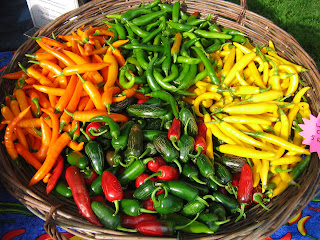“a compassion deficiency”
“a compassion deficiency”
“The depression was in origin a matter of markets and prices; prices for all major exports suffered a sharp and prolonged fall. The cut in the farmers' income blighted the whole of society and government; merchants and shopkeepers who sold to the farmer, banks and credit agencies who had lent him money, workers who handled and processed his products. The whole economy slowed down, and the symptoms of the illness appeared everywhere: farmers unable to meet interest payments and threatened with foreclosure, tradesmen and shopkeepers faced with bankruptcy, large employers reducing staff and cutting wages, wage earners either unemployed or underpaid facing destitution and eviction. Generally speaking, society was divided into two groups: those who could hold on in straitened circumstances and await the upturn, such as established farmers, business and professional men, and white collar workers with secure tenure; and, secondly, those with little or nothing to fall back upon, small farmers on poor land, wage earners subject to dismissal, casual workers, the aged, the widows, and the infirm without private means. For these latter, there was no recourse beyond niggardly public relief and haphazard private charity.”
Extract from the 1920’s
Soup is good food, soup is “moms”, mom means compassion, moms’ compassion protects from everything (even preservatives) because it always helps
It seems we always have a compassion deficiency and adding compassion always enhances life. When you are too busy, you do not create or experience enough compassion. When you take a moment to make yourself some tea, hot chocolate or soup you are showing yourself attention and care. Compassion deficiency results in symptoms, seemingly placed at random in the body. The signal from symptoms is that you need more compassion, overall. We ignore the signals for compassion replenishment at our peril. Our subjective thoughts create our reality for better or worse. More compassion is “for better,” less compassion is for “worse.”
Conclusion. Creating compassion enhances healing, health, happiness, longevity, creativity, productivity and everything else good we want. And if you focus on any one correlate, you will enhance the others. This is synchronicity and why people say we should think positive thoughts. Positive synchronicity helps exclude the negative information of fear and its correlates of pain, sickness and disease – medicine, invasive procedures and doctors.
Serving and consuming soup is positive. It is good food but not necessarily for the reason most people believe. And that reason, you know by now, is pretty important.
Serving and consuming soup is positive. It is good food but not necessarily for the reason most people believe. And that reason, you know by now, is pretty important.
Compassion
So far, my research has found the power of compassion has unlimited potential in helping us create better realities. In practice, it seems to be limited only by our beliefs of what is possible. Maybe it is time to start changing some beliefs.
Compassion? That is the short answer to the question: Why is soup good food?
So far, my research has found the power of compassion has unlimited potential in helping us create better realities. In practice, it seems to be limited only by our beliefs of what is possible. Maybe it is time to start changing some beliefs.
Compassion? That is the short answer to the question: Why is soup good food?
For your bowl of locally made passion come to the soup kitchen at the Marlborough Winter Twighlight Farmers markets – 2 pm to 5 pm, Thursdays, market place. Local Chef Matt from Highfield Estate Wintery will be serving Locally made compassion with potatoes and leeks
Matts Potatoe and Leek Soup
For a full flavoured soup firstly, preferably a day ahead make a court Bouillon, you will need about 3 Litres.
Take 3 carrots, 3 celery sticks, 1 fennel bulb, 3 cloves of garlic, 5 peppercorns, 3 star anise, 6 Bay leaves and a handful of herbs.
Roughly chop vegetables and place in stockpot with water, bring to the boil and simmer for 20 minutes remove and allow to cool.
The next day sieve off all the ingredients so as to leave yourself the liquid, this is your court bouillon (stock)
To make to soup:
2 Tbspoons butter
1 onion chopped
4 cloves garlic crushed
600g potatoes peeled and cleaned, cut into small cubes
200g chopped and washed leek
3 litres of court Bouillon
1 Litre of cream
salt and pepper
cracked pepper
Method:
Melt butter in pot adding onion and garlic, gently brown until translucent, add potatoes and leek and gently sweat.
Add Bouillon and simmer for around 30-45 minutes take soup and pass through a moule or food processor transfer back to pot and gently reheat adding cream Season to taste and finish with cracked pepper. Yum.



Comments
Post a Comment